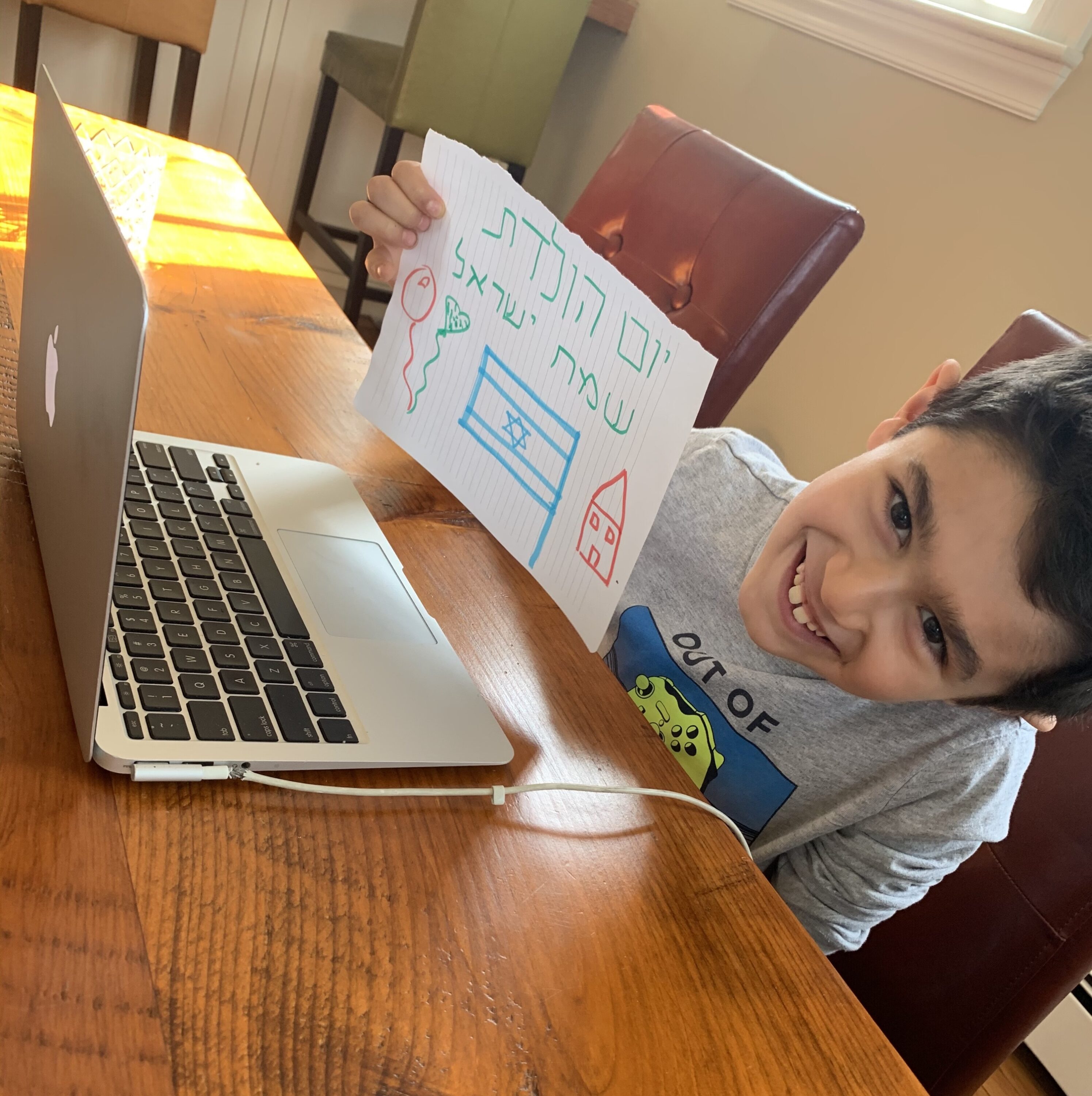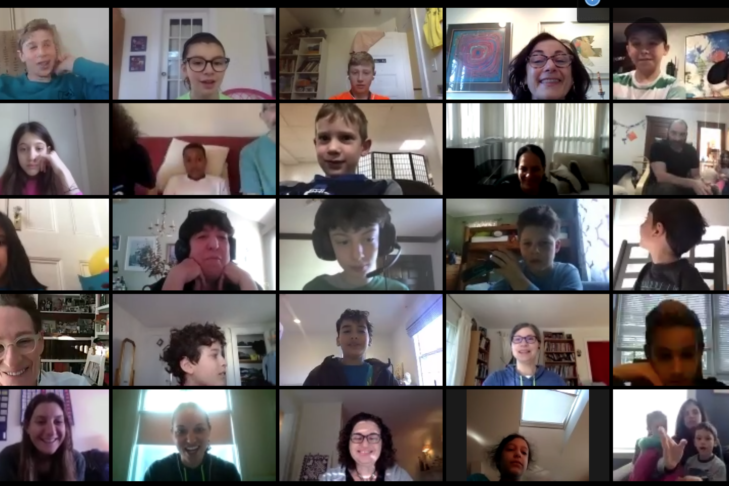This past March, the world changed overnight. In the face of COVID-19, JCDS was called upon to quickly assess what the closure of the building would mean for the school. When it became clear that, due to the pandemic, learning would need to occur in a virtual platform, keeping our sense of community remained a priority. This is why the new virtual version of JCDS is called the “Kehila Mekusheret,” which translates to “Connected Community.”
As head of school Dr. Susie Tanchel explained: “I didn’t want to choose a name for our online learning program that emphasized the cloud. That was too far away. I sought a name that, while acknowledging the online nature of the program, would emphasize the truth of our community: JCDS continues unabated in our hearts no matter where and how we meet and learn with one another.”

Once everyone realized that school would move online, there was an immediate “all hands on deck” response. To implement this new way of learning, the team determined what was possible for teachers, students and families given the varying constraints of people’s home lives. There was a learning curve for all parties.
The goal was to build upon existing tools that were already being utilized before the pandemic. Using familiar platforms allowed the teachers to keep doing what they do best:
- Building connections with the students
- Engaging students in meaningful learning
- Accounting for the different academic, social and emotional needs of each student
The first few days were a lesson in patience and resilience as everyone adjusted to this new way of learning and teaching. Teachers tried new ideas and made adjustments according to parent and student feedback in order to effectively engage their students in learning.

The Kehila Mekusheret schedule still allows time for Lower School morning meetings and Middle School advisory, as well as physical education, music and other special activities. The specialists have reimagined what they’re doing in innovative ways. For example, art teacher Vered Singer had students create portraits using recycled objects found around their homes.
As each student learns differently, some benefit from more structured online class time (synchronous learning), while others benefit from off-screen opportunities to expand upon their learning (asynchronous learning). To accommodate all students’ learning styles, there is a balance between synchronous and asynchronous learning, and teachers shift between the two as needed.
Catherine Ross, who teaches engineering for Gan Nitzan (kindergarten) through second grade, exemplifies this balance well. She makes a video of the assignment, posts it on SeeSaw and students can check in during the designated engineering time via Zoom. Some students prefer being on Zoom throughout the duration of engineering to complete the assignment, while others hop on and off Zoom with questions and then continue working independently at home offline.
Susie continues to be impressed by the ways in which the students and teachers are utilizing these platforms. “Our kids are enjoying birthday parties, playdates, t’fillah, advisory, morning meeting, in-class presentations and open circle lessons, all through the use of technology. Deep learning is happening, as is deep connecting,” she explained. “Our children continue to learn and to laugh together. I’m so proud of them for continuing to take learning risks, to question and to grow.”
During this unique moment in time, JCDS’s core strengths have proven to be even more valuable. The relationships among students, teachers and families have made this new endeavor successful. With the creation of Kehila Mekusheret, JCDS continues to innovate and to keep its community close.
As Joanne Baker, Middle School English teacher, eloquently explained, “Although everything is kind of topsy turvy these days, one of the remaining constants for JCDS kids is a sense of belonging; of support, of love and of community they are feeling in classes everyday.”
The JCDS Habits of Mind and Heart, which animate and inform everyday life at the school, are even more relevant now in the Kehila Mekusheret. In particular, our entire community is being called to put into practice the habits of perseverance, resiliency and curiosity as we embark on this new system of learning. We look forward to hopefully being back together in our building come September!
This post has been contributed by a third party. The opinions, facts and any media content are presented solely by the author, and JewishBoston assumes no responsibility for them. Want to add your voice to the conversation? Publish your own post here. MORE


